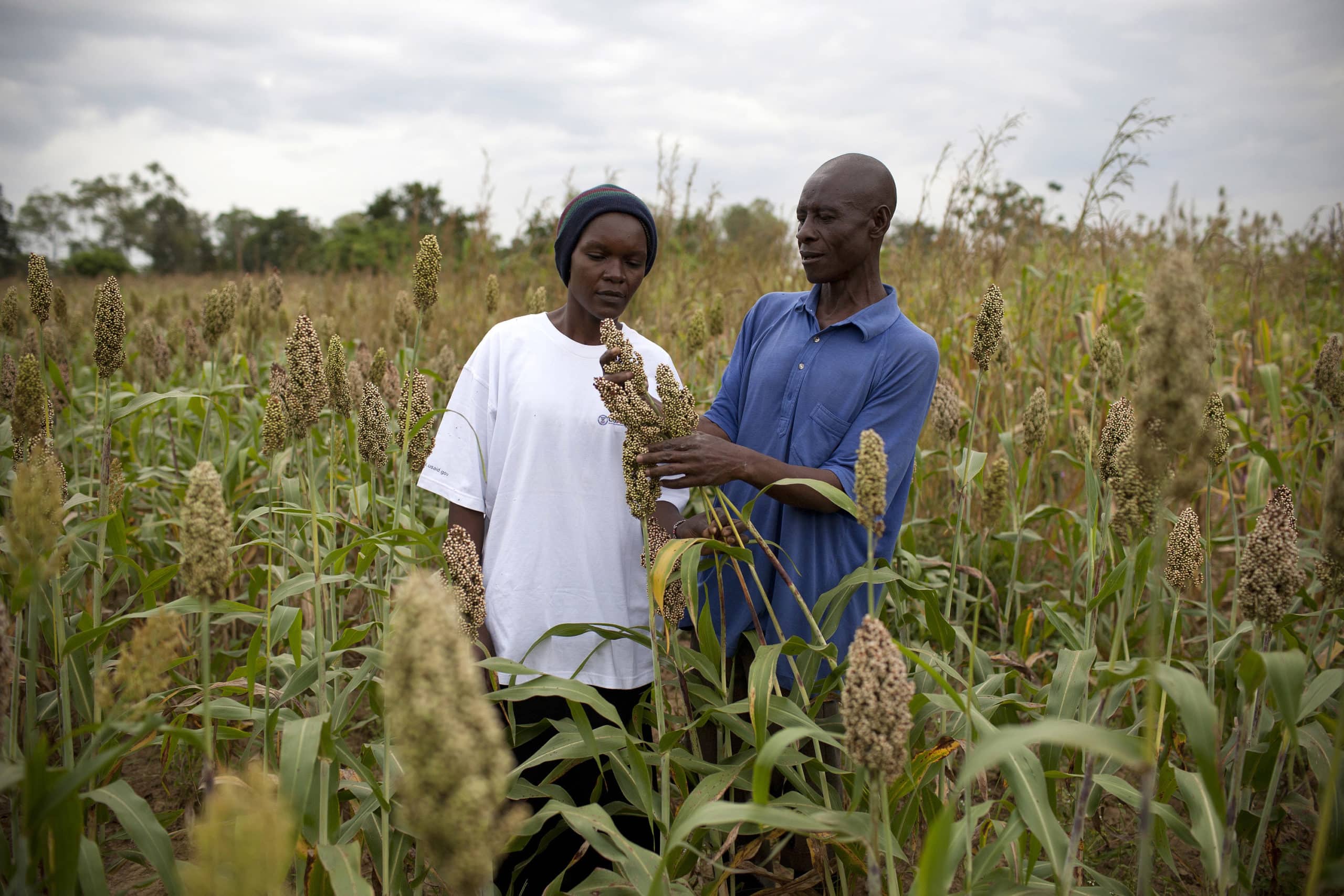
Photo: USAID/Siegfried Modola
Root Capital and the IKEA Foundation are announcing a new partnership, worth €4.8 million, to help 260,000 smallholder farmers in Kenya, Rwanda, and Uganda increase their income and adapt to climate change. The grant builds on the success of a previous partnership, through which Root Capital supported dozens of Kenyan agricultural businesses, helping them break the cycle of poverty in rural communities.
“Farming is the backbone of most communities in Africa,” says Ruth Kinoti, from Meru in Kenya. But, “if you put together a ready market and access to quality inputs, you can be sure the farmer will earn much more than they would have earned before.”
Ruth is the managing director of Shalem Investments Ltd, a small agricultural enterprise in Meru, which has been a Root Capital client since 2014. The majority of farming in her community is done by small-scale growers, who depend on businesses like Shalem to help them access domestic and international markets. In a place like this, where more than 70% of the population relies on agriculture to earn a living, strong rural businesses are the key to strong, vibrant rural communities.
Ruth Kinoti, managing director of Shalem Investments, Ltd.
But these businesses need finance and training to help them grow. Root Capital transforms smallholder farming into a viable career, through which producers can afford a better life for themselves and their families.
Over the last three years, with funding from the IKEA Foundation, Root Capital has served 90 agricultural businesses that reach around 100,000 farming families in Kenya. Together, we supported these enterprises with credit and training in financial management, and small grants to ensure the benefits of business growth reached women as well as men.
For Shalem Investments, this support has enabled them to work with twice as many local farmers as they did before. “From then, we had no reason not to grow,” Ruth says. “Because the market, especially for sorghum, was there. The farmers were there. And the money to buy was there.”
Poverty is not the only challenge for rural communities. Farmers face greater risks and uncertainty due to food insecurity, scarce resources, and a changing climate. As previously reliable weather patterns become more and more erratic, the future looks precarious for the next generation.
But agricultural businesses not only provide farmers with secure income, they can also equip farmers to be more resilient. For instance, Shalem Investments offers crop insurance and training on sustainable agricultural practices to their members. These give farmers the safety net—and increased confidence—that they need to try growing new, drought-tolerant crops that provide better yields using less water. While the impacts of climate change threaten agricultural business across East Africa, Shalem’s farmers report rising confidence in everything from their farms to their finances.
Ruth and the staff of Shalem Investments, Ltd. at their office in Meru, Kenya.
Building on the successes of the partnership with the IKEA Foundation, Root Capital’s ambition is to expand its work across East Africa over the next three years. The new €4.8 million grant will support loans and advisory services for 220 enterprises, reaching more than 260,000 smallholder farmers in Kenya, Uganda, and Rwanda. The program will also help build the resilience of rural communities in East Africa to both market and environmental shocks.
Together with hundreds of small and growing agricultural businesses, we are helping rural communities take control of their own futures. “What makes us big,” says Ruth, “is the number of souls we have transformed. The amount of wealth we have created, for ourselves and for thousands of smallholder farmers.”



